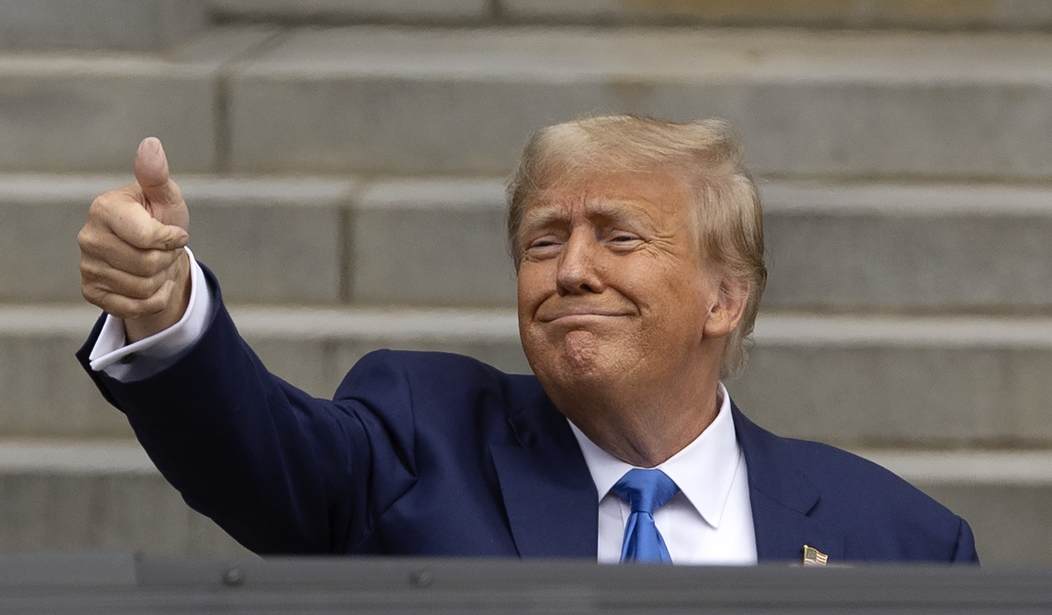Democrats and anti-Trump Republicans have been hard at work trying to prevent former President Donald Trump from possibly occupying the White House after 2024. Aside from the inundation of politically motivated indictments and investigations, they have adopted a strategy that involves using a provision in the 14th Amendment to remove him from the ballot.
In several states, anti-Trumpers have filed lawsuits seeking to keep Trump’s name off the ballot in an effort to suppress the votes of those who wish to support him and influence the outcome of the upcoming election.
Recently, Colorado and Maine have decided to remove the former president from contention. Although, in Colorado, it seems they have somewhat retreated from this position.
It is expected that this issue will eventually fall to the U.S. Supreme Court to decide. While many have speculated that the court will rule in Trump’s favor, the former president has expressed concerns about the opposite scenario manifesting.
Mr. Trump has privately told some people that he believes the Supreme Court will overwhelmingly rule against the Colorado and Maine decisions, according to a person familiar with what he has said. But he has also been critical of the Supreme Court, to which he appointed three conservative justices, creating a supermajority. The court has generally shown little appetite for Mr. Trump’s election-related cases.
Mr. Trump has expressed concern that the conservative justices will worry about being perceived as “political” and may rule against him, according to a person with direct knowledge of his private comments.
Unlike with the Colorado decision, which caught many on Mr. Trump’s team by surprise, the former president’s advisers had anticipated the Maine outcome for several days. They prepared a statement in advance of the decision and had the bulk of their appeal filing written after the consolidated hearing that Ms. Bellows held on Dec. 15, according to a person close to Mr. Trump.
The people who have filed ballot challenges have generally argued that Mr. Trump incited an insurrection when he encouraged supporters to whom he insisted the election was stolen to march on the Capitol while the 2020 electoral vote was being certified. The former president has been indicted on charges related to the eventual attack on the Capitol, but he has not been criminally charged with “insurrection,” a point his allies have repeatedly made.
I still believe it unlikely that the Supreme Court will allow the 14th Amendment stratagem to move forward. However, in this current era of politics, anything can happen. The question is: What happens if the court refuses to block efforts to remove Trump from the ballot?
Let’s start with the legal precedent this could set. Democrats argue that Trump is disqualified under the 14th Amendment, which prohibits those who have engaged in a rebellion against the government from holding office. The provision was originally intended for former members of the Confederacy after the conclusion of the Civil War. The anti-Trump faction contends that the former president incited the “insurrection” at the U.S. Capitol building on Jan. 6, 2021, which means he should never hold office again.
If the campaign succeeds, it could have ramifications for others who wish to run for office. It would essentially disqualify anyone who was even present during the riot. Democrats could summarily eliminate their opponents by invoking the 14th Amendment.
This would also incentivize Democrats to apply a broad and sweeping definition of the word “insurrection” to any demonstration involving conservatives. To put it simply, the left would milk this thing for all it is worth, and if they retain control of the government, it would be quite difficult for Republicans to do the same to their candidates.
Next, there is the inevitable shift in the political landscape. If the Supreme Court rules in the left’s favor and they are able to successfully remove Trump from enough states – especially swing states – it could upend the Republican primary elections. Currently, the former president maintains a healthy lead over his opponents and it is almost certain that he will win the nomination.
If the ballot strategy works, this means that other candidates like Florida Gov. Ron DeSantis, former U.N. Ambassador Nikki Haley, and entrepreneur Vivek Ramaswamy will now be in play. These candidates could have a fighting chance at securing the nomination as the voting base concludes that Trump will not be able to win in the general election because he can’t compete in key states.
Lastly, this scenario will lead to even more division across the country. It will be bad enough if it happens during primary season. But if the Supreme Court makes its ruling after Trump has already secured the nomination, it will be even worse.
Political tensions could easily boil over. Folks on the right would be incensed – and rightly so. In recent memory, there has not been a situation in which one party used such a tenuous justification for removing a presidential candidate from the ballot. Even further, most people, including those supporting it, could see that this gambit is motivated solely by political concerns, not a desire to protect the Constitution. Democrats are currently engaged in a naked attempt to rig the 2024 election, which will anger half of the country.
It is not outside of reason to expect that such an outcome would inspire widespread protests and even violence that might make J6 look even tamer by comparison. This would be the Democrats engaging in the coup they accused Trump supporters of, just by different methods.
The Supreme Court will be grappling with these factors, as well as the Constitutionality of the strategy. But their ruling could have tremendous ramifications for the future of the nation.













